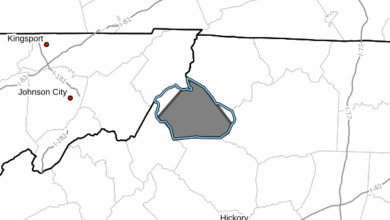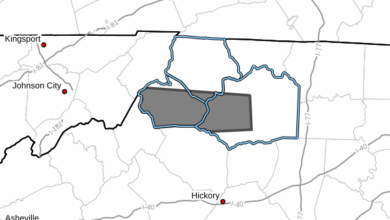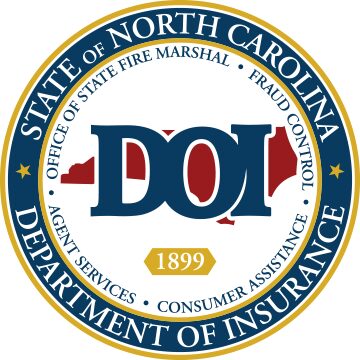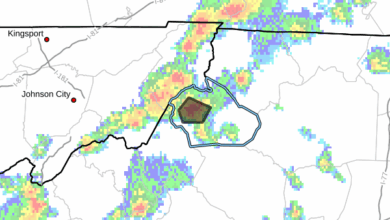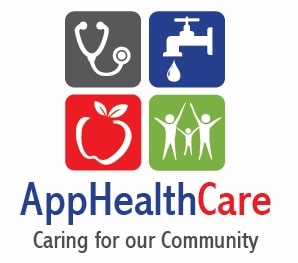
Last Updated on February 12, 2022 7:04 pm
AppHealthCare, Watauga County Schools, Appalachian Regional Healthcare System, Appalachian State University, Watauga County Emergency Management, in addition to multiple local, state and federal partners, are working together and closely monitoring COVID-19 (novel coronavirus). At this time, no cases have been identified in North Carolina and according to the NC Department of Health & Human Services (NCDHHS), the risk to the general public in NC is considered low. Even though the risk to the general public is low, we are preparing should we have COVID-19 (novel coronavirus) cases in our area.
COVID-19 (novel coronavirus) is a new virus that causes respiratory illness. Signs and symptoms include fever, cough and shortness of breath. If you develop a fever and symptoms of respiratory illness and you have been in close contact with a person known to have COVID-19 (novel coronavirus) or if you have recently traveled to an area with ongoing spread of COVID-19 (novel coronavirus), please contact your healthcare provider. Call ahead before you go to a doctor’s office or emergency room. Tell them about your recent travel and your symptoms.
“We should prepare ourselves that it is likely we will see more of this virus in the U.S., and as the virus continues to spread, we will be adapting our screening protocols following CDC and NC DHHS guidance. The best thing people can do right now is practice prevention measures like frequent handwashing, staying home when you’re sick, and keeping distance from others who are sick,” stated Jennifer Greene, Health Director, AppHealthCare.
Watauga County Schools Superintendent Dr. Scott Elliott said the school system was considering the possible impacts of COVID-19 (novel coronavirus) and is working closely with local health officials and emergency management staff.
“We’ve already begun working with our local health service agencies to determine the best steps we can take as a school system to ensure the safety of our students in the event of increased activity of the novel coronavirus in our area,” Elliott said.
Elliott said school administration had been provided with guidance for students and staff about hygiene, monitoring of students with illness and cleaning and sanitation of classrooms, buses and facilities.
“While there is still great uncertainty about what we might see from this virus, we intend to be as proactive and prepared as possible,” Elliott said.
Elliott said Watauga County Schools Lead Nurse Shelly Klutz and nurses at each school in the district planned to spend extra time in classrooms in the coming weeks to educate students about self-care and virus prevention. Klutz and her staff are in constant communication with local health officials to ensure they have access to the most up-to-date information and best practices for prevention.
Elliott said the school system was also working to ensure that all schools have access to adequate supplies and materials approved by the CDC cleaning and disinfecting surfaces.
There are things we can all do to prepare for potential widespread transmission of COVID-19 (novel coronavirus). A recent press release from NC DHHS outlines these measures in detail and are as follows (view full release).
For Individuals, Families and Communities:
- NCDHHS recommends everyone continue taking precautions to protect themselves and others from the spread of respiratory illnesses, which includes COVID-19 (novel coronavirus).
- Wash hands frequently with soap and water, and for at least 20 seconds each time.
- Avoid touching your eyes, nose and mouth with unwashed hands.
- Avoid close contact with people who are ill.
- Cover your mouth and nose with a tissue when you cough or sneeze.
- Do not reuse tissue after coughing, sneezing, or blowing your nose.
- Clean and disinfect surfaces that are frequently touched.
- It is also good practice to start being more aware of the number of times a day your hands touch an object or hard surface and then touch your face without being washed. Limiting the exposure of your nose, mouth and eyes to unwashed hands can help to protect from the spread of all germs and illnesses.
- Have a plan in case you need to miss work or other responsibilities due to personal illness or to care for a sick family member.
- For pregnant women and children, review the information and guidance available on the CDC website.
For Business and Employers:
- Practice good hand hygiene and encourage your employees and patrons to take common-sense precautions to protect themselves from the spread of respiratory illnesses.
- Review your policies and procedures for remote or teleworking where possible.
- Cross-train employees for key functions so that daily schedules can continue relatively uninterrupted by potential employee absences.
- Review absenteeism policies to make sure employees are not being encouraged to come to work if they are sick.
- If you have not already, establish a relationship with your local health department. AppHealthCare is the local health department for Alleghany, Ashe and Watauga Counties.
- Look for more updates and guidance for businesses available on the CDC website
Healthcare Providers and Hospitals
- Review policies and procedures for infection prevention and mitigation, and make sure that all employees are aware of and following the appropriate steps.
- Consider how to maximize the use of telemedicine, nurse triage lines and other options to prevent sick people from coming to clinics and emergency rooms if they have mild illness and do not need treatment.
- Continue implementing the NCDHHS and CDC guidance for COVID-19 and continue working closely with your local health department and NCDHHS.
- Look for more updates and information for health care professionals on the CDC website.
College, Universities, K-12 Schools and Child Care Facilities
- Make sure all students, faculty and staff are aware of and practicing good hand hygiene and taking common-sense precautions to protect from the spread of respiratory illnesses.
- Review absenteeism policies and procedures to make sure students or children, faculty and staff are not being encouraged to attend or work if they are sick.
- If you have not already, establish a relationship with your local health department. AppHealthCare is the local health department for Alleghany, Ashe and Watauga Counties.
- Learn more about COVID-19 on the CDC website, and look for updates and information for schools, colleges and childcare.
It is important to remember the risk to those in the US and NC is currently low, and there are things we can all do to help prevent the spread of respiratory illnesses like COVID-19 (novel coronavirus).
There is a lot of planning and coordination happening at the local, state and national level. This includes:
Preparing first responders, healthcare providers, and health systems:
- Establishing visibility across healthcare systems to understand healthcare use, particularly surges in demand for medical care and associated resources.
- Conducting extensive outreach to clinical and hospital professional organizations to ensure health system preparedness.
- Producing more than 23 guidance documents on infection control, hospital preparedness assessments, personal protective equipment (PPE) supply planning, and clinical evaluation and management (as of February 22, 2020).
- Working closely with healthcare facilities and providers to reinforce infection control principles that recognize PPE is one component of a larger set of practices that help to limit the spread of disease.
- Developing a range of respirator conservation strategies, including strategies to make supplies last longer (such as using alternative products like reusable respirators) and extending the use of disposable respirators.
- Leveraging existing telehealth tools to direct people to the right level of healthcare for their medical needs.
- Working with supply chain partners to understand supply usage, what products are available, and when more aggressive measures may need to be taken to ensure that healthcare workers at highest risk have access to PPE.
- Sharing information with stakeholders to help them recognize when to shift the strategies they are using.
Reinforcing state, territorial, and local public health readiness:
- Assessing state and local readiness to implement community mitigation measures like home containment, including housing and transportation needs.
- Coordinating with states to identify and mitigate gaps in readiness that will help reduce the spread of disease in the community while protecting workers, infrastructure, and institutions.
- Linking public health agencies and healthcare systems to identify and mitigate stressors to the health system.
- Tracking stockpiles of PPE across jurisdictions.
- Working with state and local public health to use existing Public Health Emergency Preparedness (PHEP) funding to support COVID-19 (novel coronavirus) preparedness and response activities.
- Leveraging funding mechanisms to help states accelerate preparedness activities.
- Providing technical assistance and guidance to states to improve their ability to respond to the outbreak.
Supporting communities, businesses, and schools:
- Creating business guidance to help the public and private sectors ensure they are able to operate with adaptations like telework and flexible sick leave policies, as well as how to respond if an employee gets sick.
- Developing guidance for childcare programs, K-12 schools, and colleges/universities to help them plan and prepare for COVID-19 and respond if there is a local outbreak in their community.
- Providing planning guides for COVID-19 (novel coronavirus) that households, community- and faith-based organizations, event planners of mass gatherings, and public health communicators can use.
- Educating communities about nonpharmaceutical interventions (NPIs) that help slow the spread of illness, like COVID-19 (novel coronavirus). [Source: CDC]
AppHealthCare is available and on-call 24/7 to respond to public health emergencies. To reach us, call (828) 264-4995 anytime and follow the prompts.
For more information on COVID-19 (novel coronavirus), please visit the Centers for Disease Control & Prevention (CDC) website at cdc.gov/coronavirus. North Carolina resources can be found on the Division of Public Health website at ncdhhs.gov/coronavirus.
A COVID-19 toll free helpline has been set up to answer general, non-emergent questions at 1-866-462-3821. To submit questions online, go to www.ncpoisoncontrol.org and select “chat.”











